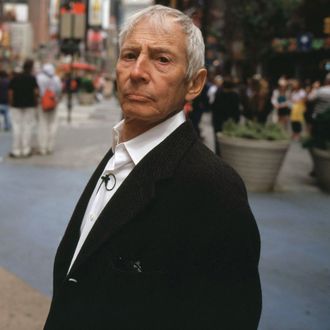
Robert Durst incriminated himself in three murders on The Jinx finale last night — immediately followed by complaints about spoiler alerts on Twitter.
Debates over the etiquette of when and how it’s fair to convey key information to a wide audience — not to mention the nature of what constitutes key information — have raged for years now. Vulture even wrote a manifesto and an official set of guidelines about spoilers once, which (we flatter ourselves) holds up pretty well. It’s obviously true that there are some reasonable precautions that can be taken in order to preserve the element of surprise for audience members who may not be watching in real time. It’s also true that, at the other end of the spectrum, extremist spoiler-alert culture can essentially translate into everyone else in the world tiptoeing around the one person who didn’t get around to watching that show that finished five years ago yet.
But the key difference here is that The Jinx isn’t fiction. It is a docu-drama about a real man who is very probably a murderer multiple times over and whose cases have been covered in the media for decades. When a famous murder suspect all but confesses, it is news, and the fact that the confession happened within the confines of a television show does not mean that that news becomes subject to the same etiquette as the latest Game of Thrones killing. Because that’s fiction, and it doesn’t really matter.




